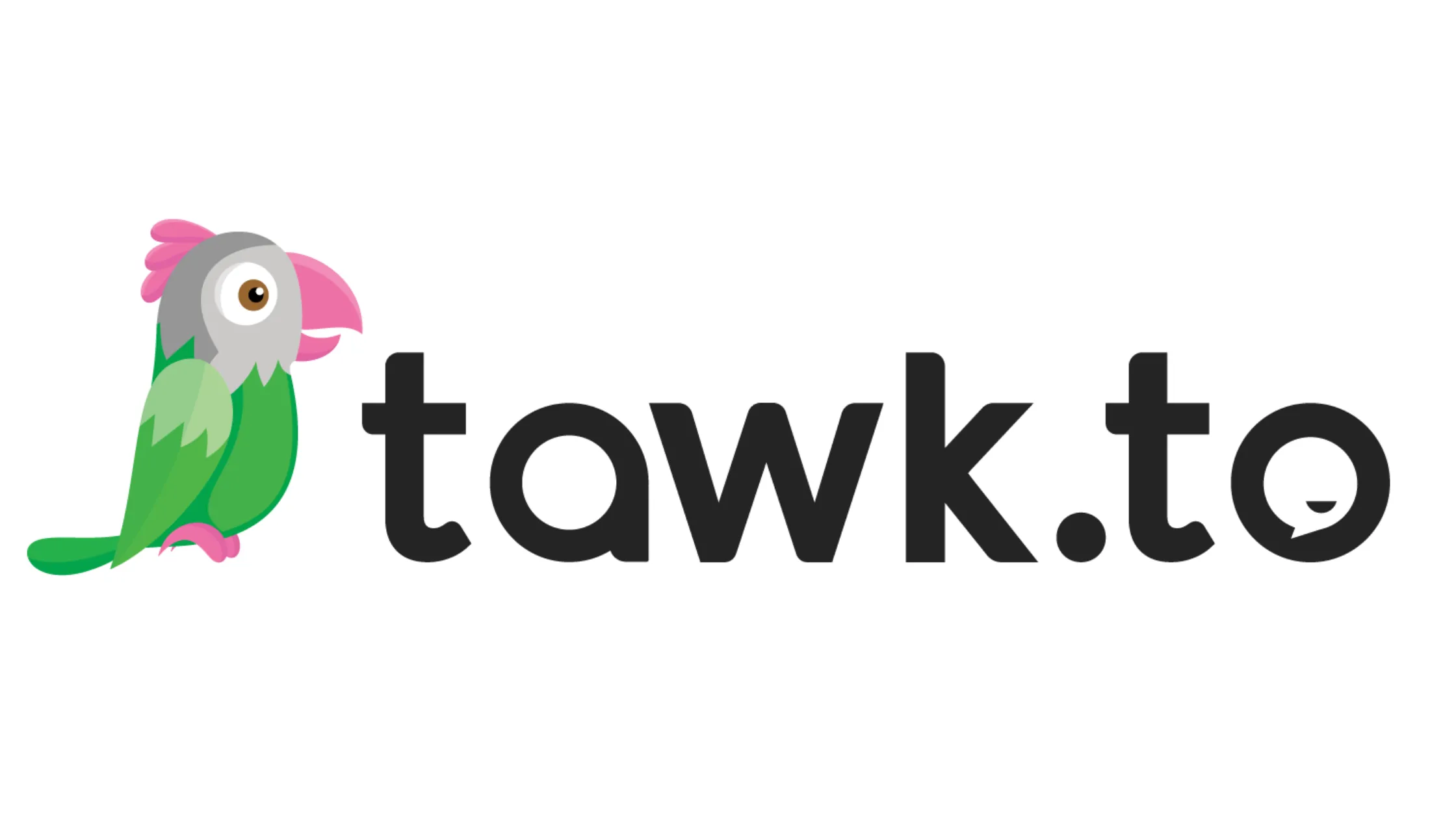
What is a Pre-Seed Startup?
Discover essential strategies for pre-seed startup success. From ideation to funding, learn how to lay a solid foundation for your startup.
You've got a brilliant idea that's been keeping you up at night, and you're itching to turn it into a reality. Welcome to the exhilarating world of pre-seed startups! It's a rollercoaster ride that'll test your mettle, push your limits, and maybe even make you question your sanity. But hey, that's all part of the fun, right?
Let's face it, launching a pre-seed startup isn't for the faint of heart. It's like trying to build a ship while you're already out at sea – challenging, unpredictable, and sometimes downright terrifying. But with the right mindset, strategies, and a dash of moxie, you can navigate these choppy waters and set sail towards success.
In this article, we'll dive deep into the nitty-gritty of pre-seed startups. We'll explore everything from refining your groundbreaking idea to wooing investors and building a dream team. So, buckle up, future unicorn founder! We're about to embark on a journey that'll transform your entrepreneurial vision into a force to be reckoned with.
Decoding the Pre-Seed Startup Stage
What Exactly is a Pre-Seed Startup?
Before we dive in headfirst, let's get our bearings straight. What the heck is a pre-seed startup, anyway? Well, picture this: you're at the very beginning of your entrepreneurial journey. You've got more questions than answers, more ideas than capital, and more enthusiasm than experience. That's the essence of a pre-seed startup.
It's the stage where you're still fleshing out your concept, validating your assumptions, and trying to convince everyone (including yourself) that you're not completely bonkers for pursuing this dream. You're laying the groundwork, planting the seeds of what could potentially grow into the next big thing.
Why the Pre-Seed Stage Matters
Now, you might be wondering, "Why all the fuss about this pre-seed malarkey?" Well, let me tell you, this stage is crucial. It's like the foundation of a house – get it wrong, and everything else you build on top of it is gonna be shakier than a Jenga tower in an earthquake.
The pre-seed stage is where you:
- Refine your idea and business model
- Conduct initial market research
- Build a prototype or minimum viable product (MVP)
- Start forming your core team
- Begin seeking your first round of funding
Get these elements right, and you'll be setting yourself up for success in the later stages of your startup journey. Mess 'em up, and... well, let's just say you might find yourself back at the drawing board sooner than you'd like.
Crafting Your Million-Dollar Idea
Identifying a Problem Worth Solving
Alright, so you've got an idea that you think is hotter than a jalapeño in a heatwave. But here's the million-dollar question: does it actually solve a real problem? 'Cause let me tell you, if it doesn't, you might as well be trying to sell ice to Eskimos.
The key to a successful pre-seed startup is identifying a problem that's not just annoying, but downright painful for your target market. You want people to look at your solution and think, "Where have you been all my life?" not "Meh, I could take it or leave it."
So, how do you find these golden nugget problems? Here are a few strategies:
- Look for inefficiencies in your daily life or work
- Pay attention to complaints and frustrations in your industry
- Keep an eye on emerging trends and technologies
- Talk to people – lots of people – about their challenges
Remember, the best startup ideas often come from personal experience. If you've faced a problem yourself, chances are others have too.
Validating Your Idea
Now, I hate to burst your bubble, but just because you think your idea is the best thing since sliced bread doesn't mean the rest of the world will agree. That's why validation is crucial in the pre-seed startup stage.
Validation is all about testing your assumptions and gathering evidence that your idea has legs. It's like dipping your toe in the water before you dive in headfirst. Here are some ways to validate your idea:
- Conduct surveys and interviews with potential customers
- Create a landing page to gauge interest
- Build a prototype or MVP and get feedback
- Analyze competitor offerings and market trends
- Run small-scale experiments or pilots
The goal here isn't to prove that your idea is perfect (spoiler alert: it probably isn't). It's to gather enough data to make informed decisions about how to move forward. And hey, if the validation process reveals that your idea needs some tweaking, or even a complete overhaul? That's not failure, that's progress, baby!
Building Your Dream Team
The Importance of Co-Founders
Listen up, 'cause this is important: running a pre-seed startup solo is about as advisable as trying to juggle chainsaws while riding a unicycle. Sure, it's possible, but why make life harder than it needs to be?
Finding the right co-founder(s) can be a game-changer for your pre-seed startup. It's like having a partner in crime, someone to share the load, bounce ideas off, and keep you sane when things get crazy (and trust me, they will).
When looking for co-founders, consider:
- Complementary skills: If you're a tech whiz, maybe look for someone with business acumen
- Shared vision: Make sure you're on the same page about where you want the company to go
- Compatible work styles: You'll be spending a lot of time together, so make sure you can actually stand each other
- Trustworthiness: This person will be your ride-or-die in the business world, so choose wisely
Remember, choosing a co-founder is like getting married – except divorce is even messier. So take your time and choose wisely!
Attracting Early Talent
Once you've got your core team in place, it's time to start thinking about bringing on some early employees. Now, I know what you're thinking: "How am I supposed to attract top talent when all I've got is a half-baked idea and a dream?" Well, my friend, that's where the magic of the startup world comes in.
In the pre-seed stage, you probably can't compete with big companies on salary or benefits. But what you can offer is something far more valuable: the chance to be part of something from the ground up, to make a real impact, and potentially hit the jackpot if things take off.
Here are some tips for attracting early talent:
- Sell your vision: Paint a compelling picture of what you're trying to achieve
- Offer equity: Give them a stake in the company's success
- Provide autonomy: Let them take ownership of their work
- Create a positive culture: Make your startup a place people actually want to work
Remember, in a pre-seed startup, every hire is crucial. You're not just filling a position; you're bringing on a partner who'll help shape the future of your company. Choose wisely, grasshopper!
Securing That Sweet, Sweet Funding
Understanding Pre-Seed Funding Options
Ah, money. The lifeblood of any startup. In the pre-seed stage, funding can feel about as elusive as a unicorn riding a rainbow. But fear not! There are actually quite a few options available for the savvy entrepreneur.
Let's break down some of the most common pre-seed funding sources:
- Bootstrapping: Using your own savings or revenue to fund growth
- Friends and family: Tapping into your personal network for initial capital
- Angel investors: Individual investors who provide early-stage funding
- Accelerators and incubators: Programs that offer funding, mentorship, and resources
- Crowdfunding: Platforms like Kickstarter or Indiegogo to raise funds from the public
- Grants: Government or private grants for specific industries or innovations
Each of these options has its pros and cons, and the right choice depends on your specific situation. Maybe you're comfortable maxing out your credit cards to fund your dream (bootstrapping), or perhaps you've got a rich uncle who's always believed in you (friends and family). Whatever route you choose, make sure you understand the implications and strings attached.
Crafting a Killer Pitch
So, you've decided to go the investor route. Fantastic! Now comes the fun part: convincing someone to give you a boatload of cash based on little more than your charm and a PowerPoint presentation. No pressure, right?
Crafting a killer pitch is an art form. It's about striking the perfect balance between confidence and humility, between dreaming big and staying grounded. Here are some key elements to include:
- A clear problem statement: What pain point are you addressing?
- Your unique solution: How are you solving the problem better than anyone else?
- Market opportunity: Show that there's a big enough market to make this worthwhile
- Traction: Any early wins or validation you can showcase
- Team: Highlight why you're the right people to execute this vision
- Financials: Show that you understand the numbers and have a path to profitability
- Ask: Be clear about how much you're asking for and how you'll use the funds
Remember, investors aren't just buying into your idea – they're buying into you. So let your passion shine through, but back it up with solid facts and figures.
From Idea to MVP: Making It Real
Defining Your Minimum Viable Product
Alright, you've got your idea, your team, and maybe even some funding. Now it's time to roll up your sleeves and start building something real. Enter the Minimum Viable Product, or MVP – your startup's first impression to the world.
An MVP is like the trailer for your startup's blockbuster movie. It's not the full feature, but it should give people a taste of what's to come and leave them wanting more. The key is to focus on the core features that solve your main problem, and leave the bells and whistles for later.
When defining your MVP, consider:
- What's the primary problem you're solving?
- What's the simplest way to solve that problem?
- What features are absolutely necessary, and what can wait?
- How can you validate your assumptions with minimal resources?
Remember, your MVP doesn't have to be perfect. In fact, if you're not a little embarrassed by your first version, you've probably waited too long to launch!
Iterating Based on Feedback
Once your MVP is out in the wild, it's time for the real fun to begin. You'll start getting feedback – some good, some bad, some downright confusing. This is where the rubber meets the road in the pre-seed startup world.
Iteration is the name of the game here. You need to be ready to pivot faster than a ballerina on espresso. Here's how to make the most of the feedback you receive:
- Listen actively: Really hear what users are saying, not just what you want to hear
- Look for patterns: Is there a common thread in the feedback you're receiving?
- Prioritize: You can't address everything at once, so focus on the most impactful changes
- Test and measure: Make changes incrementally and track their impact
- Stay true to your vision: Don't let every piece of feedback throw you off course
Remember, the goal of iteration isn't to please everyone – it's to create a product that solves a real problem in a meaningful way. Stay focused on that, and you'll be well on your way to pre-seed startup success.
Navigating the Legal Labyrinth
Choosing the Right Business Structure
Now, I know what you're thinking: "Legal stuff? Yawn!" But trust me, getting your ducks in a row legally can save you a world of hurt down the line. One of the first big decisions you'll need to make is choosing the right business structure for your pre-seed startup.
Your options typically include:
- Sole Proprietorship: Simple, but leaves you personally liable
- Partnership: Good for multiple founders, but can get messy
- Limited Liability Company (LLC): Offers liability protection and flexibility
- Corporation: More complex, but attractive to investors
Each structure has its pros and cons in terms of taxes, liability, and complexity. It's like choosing a character in a video game – each one has different strengths and weaknesses, and the right choice depends on your specific situation and goals.
Protecting Your Intellectual Property
In the world of pre-seed startups, your ideas are your most valuable asset. So you'd better believe you need to protect them like a mama bear protects her cubs. Intellectual property (IP) protection comes in several flavors:
- Patents: For inventions and unique processes
- Trademarks: For your brand name, logo, and slogans
- Copyrights: For original works like software code or content
- Trade secrets: For confidential business information
Now, I'm not saying you need to patent every half-baked idea that pops into your head at 3 AM. But you should have a strategy for protecting the core innovations that give your startup its competitive edge.
And let's not forget about good old-fashioned contracts. Non-disclosure agreements (NDAs), employee agreements, and founder agreements can all help keep your secret sauce... well, secret.
Building a Brand from Scratch
Crafting Your Unique Value Proposition
In the crowded marketplace of ideas, your pre-seed startup needs to stand out like a peacock at a penguin convention. That's where your Unique Value Proposition (UVP) comes in. Your UVP is the special sauce that sets you apart from the competition – it's the reason why customers should choose you over anyone else.
Crafting a strong UVP involves:
- Understanding your target audience's needs and pain points
- Identifying what makes your solution unique
- Communicating your benefits clearly and concisely
- Focusing on the value you provide, not just features
Remember, your UVP isn't just a catchy slogan – it's the north star that guides all your branding and marketing efforts. Get it right, and you'll have a powerful tool for attracting customers and investors alike.
Developing a Memorable Brand Identity
Now that you've got your UVP nailed down, it's time to wrap it up in a pretty package. Your brand identity is how you present yourself to the world – it's the face of your pre-seed startup, if you will.
Developing a strong brand identity involves:
- Choosing a name that reflects your values and resonates with your audience
- Creating a logo that's simple, memorable, and versatile
- Selecting a color palette and typography that align with your brand personality
- Defining your brand voice and tone
- Crafting key messages that communicate your UVP
Remember, consistency is key when it comes to branding. You want to create a cohesive experience across all touchpoints – from your website to your business cards to your product packaging.
And here's a pro tip: don't be afraid to inject some personality into your brand. In the pre-seed stage, you're small and nimble – use that to your advantage! Be bold, be quirky, be whatever makes you uniquely you. After all, in a sea of corporate blandness, a little personality can go a long way.
Embracing the Pre-Seed Startup Hustle
Developing a Growth Mindset
Let's face it, the pre-seed startup life isn't for the faint of heart. It's a rollercoaster ride of highs and lows, victories and setbacks. To survive (and thrive) in this world, you need to develop a growth mindset faster than a cheetah on Red Bull.
A growth mindset means:
- Viewing challenges as opportunities for learning and growth
- Embracing failure as a stepping stone to success
- Being open to feedback and criticism
- Continuously seeking to improve and evolve
- Believing that your abilities can be developed through dedication and hard work
Remember, in the pre-seed stage, you're not just building a product or a company – you're building yourself as an entrepreneur. Embrace the journey, learn from every experience, and keep pushing forward.
Balancing Vision with Flexibility
Here's the thing about pre-seed startups: they rarely end up exactly where they planned to go. It's like setting out on a road trip with a destination in mind, but being open to exciting detours along the way.
Balancing vision with flexibility means:
- Staying true to your core mission and values
- Being open to pivoting your product or business model based on feedback and market realities
- Adapting quickly to changes in the market or technology landscape
- Knowing when to stick to your guns and when to change course
- Being willing to kill your darlings if they're not serving your ultimate goals
Remember, flexibility doesn't mean being wishy-washy or lacking direction. It means being agile and responsive while keeping your eye on the prize. It's a delicate balance, but mastering it can be the difference between a pre-seed startup that fizzles out and one that goes the distance.
Partnering with Horizon-Labs.co: Your Pre-Seed Startup's Secret Weapon
As we've seen, navigating the choppy waters of a pre-seed startup is no small feat. From refining your million-dollar idea to building a dream team, securing funding, and developing your MVP, there's a lot to juggle. But here's the thing: you don't have to go it alone. That's where Horizon-Labs.co comes in, ready to be your trusted partner in this exhilarating journey.
Led by a Y-Combinator alum, Horizon-Labs.co brings a wealth of experience and expertise to the table. We've been in your shoes, we've faced the same challenges, and we've come out the other side stronger for it. Our team of seasoned product builders understands the unique needs of pre-seed startups and founders. We're not just another development shop – we're your partners in turning your vision into reality.
At Horizon-Labs.co, we're committed to building your tech better, faster, and more cost-effectively than the competition. We've honed our processes to deliver high-quality MVPs that will impress investors and delight users. So why struggle alone when you can have a powerhouse team in your corner? Don't let technical challenges hold your pre-seed startup back. Contact Horizon-Labs.co today, and let's discuss how we can supercharge your journey from idea to game-changing product. Your next big breakthrough is just a conversation away!
Frequently Asked Questions (FAQs) about Pre-Seed Startups:
Q: How long does the pre-seed stage typically last?
A: The pre-seed stage can vary widely depending on the startup, but it typically lasts between 3 to 18 months. Factors influencing the duration include the complexity of the product, the speed of market validation, and the time required to secure additional funding. Some startups may move through this stage quickly in a matter of months, while others might spend over a year refining their concept and building traction.
Q: What's the difference between pre-seed and seed funding?
A: Pre-seed funding is the earliest stage of startup financing, often used to validate an idea and build an initial product. It's typically smaller in amount, ranging from $50,000 to $500,000. Seed funding, on the other hand, comes after the pre-seed stage and is used to support early growth and operations. Seed rounds are usually larger, ranging from $500,000 to $2 million or more. Another key difference is that pre-seed investors are often friends, family, or angel investors, while seed rounds may involve professional venture capital firms.
Q: Can a startup skip the pre-seed stage and go straight to seed funding?
A: While it's possible, it's relatively rare for startups to skip the pre-seed stage entirely. Some founders with strong track records or particularly compelling ideas might secure seed funding right away. However, most investors prefer to see some level of validation or traction before committing larger sums of money. Skipping the pre-seed stage can also deprive founders of valuable learning experiences and the opportunity to refine their product with minimal financial pressure.
Q: How important is having a technical co-founder for a pre-seed startup?
A: Having a technical co-founder can be incredibly valuable for a pre-seed startup, especially if the product is technology-focused. However, it's not always necessary. Many successful startups have been founded by non-technical founders who either learned to code, hired developers, or partnered with technical agencies. The key is to have a clear vision and the ability to execute on it, whether through your own skills or by effectively managing others. If you don't have a technical co-founder, it's crucial to have a solid plan for how you'll build your product.
Q: What are some unconventional ways to fund a pre-seed startup?
A: While traditional methods like friends and family rounds or angel investors are common, there are some less conventional approaches to funding a pre-seed startup:
- Revenue-based financing: Borrow against future revenue projections.
- Startup competitions: Many offer cash prizes and exposure to investors.
- Government grants: Depending on your industry and location, there may be grants available for innovative startups.
- Strategic partnerships: Some larger companies offer funding or resources to startups in exchange for first access to new technologies.
- Crypto token sales: For blockchain-related startups, initial coin offerings (ICOs) or token sales can be a funding option, though this comes with regulatory considerations.
Q: How do pre-seed startups typically handle equity distribution?
A: Equity distribution in pre-seed startups can be tricky and varies widely. A common approach is the "founder's pie calculator," which considers factors like idea generation, domain expertise, commitment, and responsibilities. As a rough guide, many pre-seed startups aim for an equal split among founders (e.g., 50-50 for two founders, or 33-33-33 for three), with a portion set aside for future employees and advisors (usually 10-20%). It's crucial to have frank discussions about equity early on and to implement vesting schedules to protect all parties involved.
Q: How do pre-seed startups protect their intellectual property?
A: Pre-seed startups often struggle with balancing the need to protect their ideas and the need to share them for feedback and funding. Some strategies include:
- Non-disclosure agreements (NDAs) with potential partners or investors
- Provisional patent applications for unique inventions
- Trademark registration for brand names and logos
- Keeping core technology as trade secrets
- Using copyrights for software code and content.
Remember, while protection is important, most investors value execution over ideas, so don't let IP concerns prevent you from seeking necessary feedback and support.
Q: What are some key metrics investors look for in pre-seed startups?
A: While pre-seed startups often lack extensive financial data, investors typically look for:
- User growth rate or customer acquisition velocity
- Engagement metrics (e.g., daily active users, time spent in app)
- Early signs of product-market fit (e.g., user feedback, repeat usage)
- Burn rate and runway
- Market size and growth potential
- Team composition and relevant experience
- Early partnerships or letters of intent from potential customers
Q: How can pre-seed startups attract top talent with limited resources?
A: Attracting talent on a tight budget is challenging but not impossible. Some strategies include:
- Offering equity compensation packages
- Emphasizing the opportunity for significant professional growth
- Creating a strong company culture and mission
- Leveraging your network for referrals
- Partnering with universities for internships or recent graduate programs
- Offering flexible work arrangements or other non-monetary benefits
- Showcasing the potential for future career advancement as the company grows
Q: What are some common reasons pre-seed startups fail?
A: Understanding potential pitfalls can help founders avoid them. Common reasons for failure include:
- Running out of cash before achieving key milestones
- Lack of product-market fit
- Team conflicts or breakups
- Regulatory hurdles or legal issues
- Inability to scale efficiently
- Strong competition or market saturation
- Premature scaling before validating the business model
- Failure to pivot when necessary
Q: How do pre-seed startups typically approach customer acquisition?
A: In the early stages, customer acquisition often relies on low-cost, high-effort methods:
- Leveraging personal networks and word-of-mouth referrals
- Content marketing and social media engagement
- Participating in industry events or startup pitch competitions
- Cold outreach to potential customers or partners
- Offering free trials or freemium models to attract early adopters
- Collaborating with influencers or thought leaders in the industry
- Implementing referral programs to incentivize existing users
Q: What role does market research play in the pre-seed stage?
A: Market research is crucial for pre-seed startups to validate their ideas and refine their offerings. Key aspects include:
- Identifying target customer segments and their pain points
- Analyzing competitors and potential substitutes
- Estimating market size and growth potential
- Understanding industry trends and regulatory landscape
- Gathering feedback on product concepts or prototypes
- Identifying potential partners or distribution channels. This research helps founders make informed decisions and build a compelling case for investors.
Q: How can pre-seed startups effectively manage their runway?
A: Managing runway is critical for survival. Strategies include:
- Implementing lean startup methodologies to minimize waste
- Prioritizing essential expenses and cutting non-critical costs
- Negotiating favorable terms with suppliers or service providers
- Exploring alternative funding sources (e.g., grants, competitions)
- Considering part-time or contract work to supplement funding
- Regularly reviewing and adjusting financial projections
- Setting clear milestones and linking them to funding needs
Q: What are some innovative ways pre-seed startups can validate their ideas?
A: Beyond traditional methods, some innovative approaches include:
- Creating "fake door" tests to gauge interest in potential features
- Using crowdfunding platforms as a form of market validation
- Developing interactive prototypes or simulations for user testing
- Leveraging AI and machine learning for rapid data analysis and insights
- Conducting virtual focus groups or user interviews
- Using social media polls or targeted ads to test messaging and concepts
- Creating a "concierge MVP" where founders manually deliver the service to early customers
Whether you're validating an idea, scaling an existing product, or need senior engineering support—We help companies build ideas into apps their customers will love (without the engineering headaches). US leadership with American & Turkish delivery teams you can trust.
Need Developers?
We help companies build ideas into apps their customers will love (without the engineering headaches). US leadership with American & Turkish delivery teams you can trust.
















For Startups & Founders
We've been founders ourselves and know how valuable the right communities, tools, and network can be, especially when bootstrapped. Here are a few that we recommend.

Mistakes to Avoid When Building Your First Product
Learn the key mistakes founders make when building their first product—and how to avoid them for a faster, smoother launch.
Read more
The Rise of AI in Product Development: What Startups Need to Know
Learn how AI is transforming product development for startups. From MVPs to scaling, here’s what founders need to know in today’s AI-driven world.
Read more
No-Code vs. Custom Development: Which is Right for Your Startup?
Weighing no-code vs. custom development? Learn which is right for your startup depending on stage, budget, and product complexity.
Read more
What is Mixpanel?
Learn how Mixpanel helps startups track user behavior to improve products and accelerate growth with clear data-driven insights.
Read more
How Tawk.to Can Boost Your Startup’s Customer Support Game
Learn how Tawk.to can benefit startups by enhancing customer support and engagement. Perfect for early-stage founders!
Read more
Grow Your Startup With Anthropic's AI-Powered Tools
Discover how Anthropic's cutting-edge AI tools can accelerate your startup's success. Learn about their benefits and see why they can be trusted by startups.
Read more
What is Data-Driven VC?
Learn what a data-driven VC means and how such investors can benefit your startup’s growth and fundraising journey.
Read more
What is Blockchain?
A beginner-friendly guide on blockchain for startup founders, covering key concepts, benefits, challenges, and how to leverage it effectively.
Read more
What is Cybersecurity?
Learn cybersecurity basics tailored for startup founders. Understand key risks, best practices, and how to protect your startup from tech threats.
Read more
What is Seedcamp?
Learn what Seedcamp is, how its European seed fund and accelerator program work, and how founders can use its capital, mentorship, and network to scale their st
Read more
What is AngelList?
AngelList is a prime platform connecting startup founders to investors, talent, and resources to accelerate early-stage growth.
Read more
What is 500 Startups?
Learn what 500 Startups (now 500 Global) is, how its accelerator and seed fund work, and when founders should consider it—plus tips for early-stage startups.
Read more.webp)